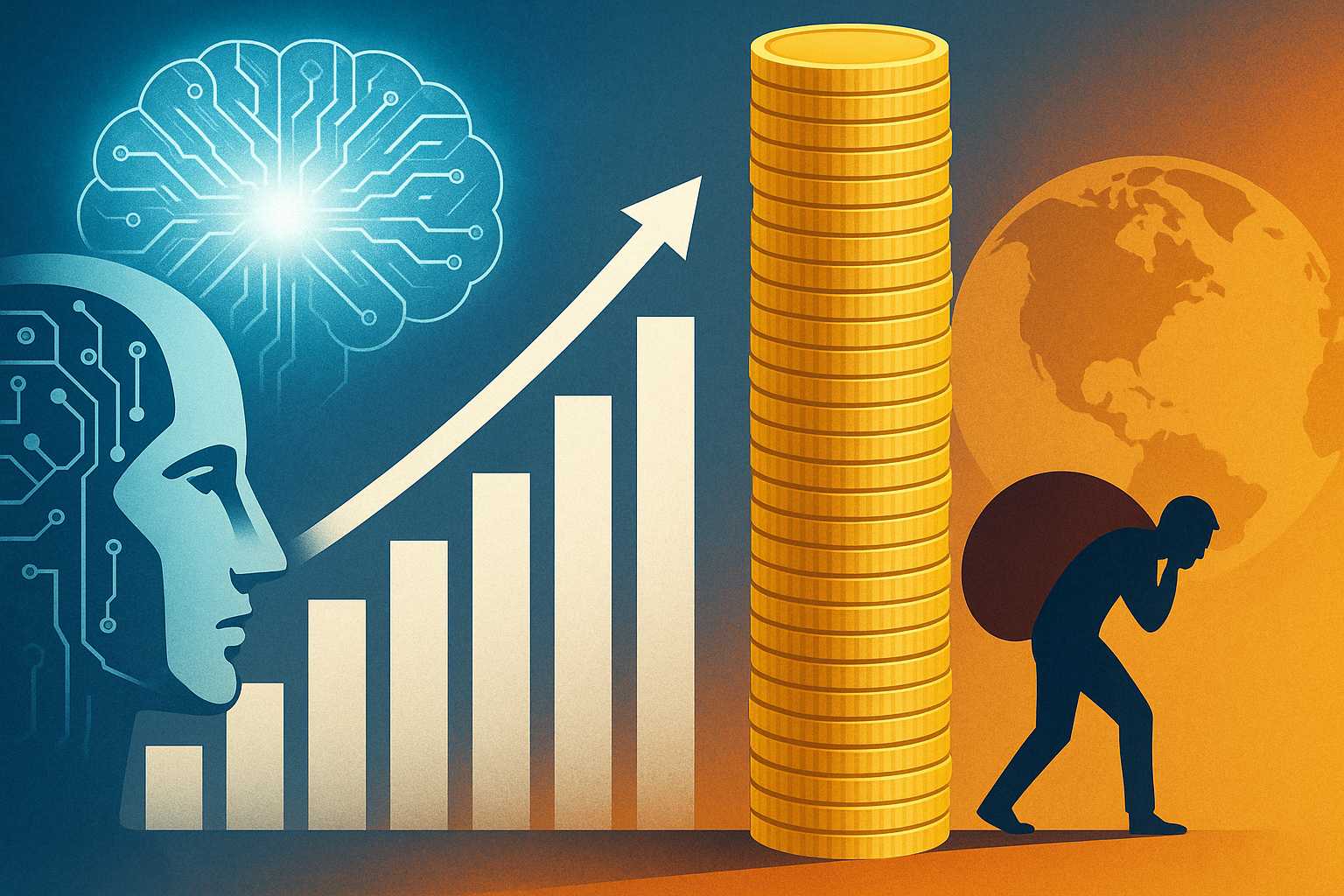Artificial Intelligence is accelerating productivity across every major industry. Entire sectors are being rebuilt around automation, data-driven decision-making, and robotics that can outperform human labor at a scale once unimaginable. This new wave of innovation is not theoretical — it is happening now, and it is reshaping the world economy faster than governments or citizens can respond.
But with this remarkable leap forward comes an old, familiar problem:
The Wealth Created by Innovation Is Not Shared Equally
Historically, every major technological revolution has created extraordinary wealth at the top while the broader public waits — often decades — before experiencing meaningful benefits. We saw it in the Industrial Revolution, the telecommunications boom, the early internet era, and now we are watching the same pattern repeat with AI.
A handful of companies and individuals are positioned to become trillionaires while hundreds of millions still struggle for basic food security. This contradiction isn’t just an economic problem — it is a moral and civic crisis.
The Public Fear: “I’m Supporting the World on My Back”
Everyday workers feel the pressure. Productivity is rising, corporate earnings are climbing, and AI systems are rapidly replacing repetitive job functions — yet wages remain stagnant. Overworked families feel as though they are “carrying the world on their backs” while the rewards flow elsewhere.
This imbalance creates political resentment, distrust in institutions, and a sense that the system no longer reflects shared prosperity.
AI Will Create Historic Wealth – But Who Decides Where It Goes?
The prospect of AI-driven trillionaires is no longer hypothetical. Market valuations, ownership of training data, and global platform control mean that extreme concentration of wealth is likely — unless citizens and policymakers take an active role.
Meanwhile, world hunger is rising again, not because the planet cannot produce enough food, but because distribution and access remain fundamentally inequitable.
These two forces — unprecedented wealth creation and growing human need — cannot be allowed to move in opposite directions.
The Path Forward: A Future That Works for Everyone
- Transparent policy around AI profits:
So that the value created by public data, shared infrastructure, and collective innovation benefits everyone. - Responsible taxation models:
Not punitive, but fair — ensuring the world’s most powerful companies contribute proportionally to the society that enables their success. - Investment in global food stability and education:
When economies grow, people should not be left hungry. When technology advances, workers should not be left behind. - Citizen-driven oversight:
Because government alone will not act unless voters demand it.
IVMV’s Core Principle
If innovation lifts society, then society deserves a share of the lift.
Democracy gives voters the power to shape how AI, automation, and future industries serve the public good. But that only works if citizens participate, vote, speak up, and challenge leaders who refuse to confront this growing gap.
Your Action Step – Get Involved Early
- Urge your representatives to support policies that ensure AI-driven prosperity is shared, not hoarded.
- Support candidates who prioritize economic fairness, innovation oversight, and global hunger solutions.
- Share this message with one person today — civic awareness grows one conversation at a time.
Together, we can ensure that the next era of technological progress is an era of shared prosperity, not widening divides.



